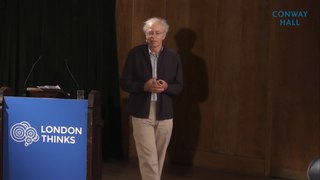Related Research Articles
Heifer International is a global nonprofit working to eradicate poverty and hunger through sustainable, values-based holistic community development. Heifer International distributes animals, along with agricultural and values-based training, to families in need around the world as a means of providing self-sufficiency. Recipients must agree to "pass on the gift" by donating animal offspring, as well as sharing the skills and knowledge of animal husbandry and agricultural training with other impoverished families in the community.
CharityWatch, formerly known as the American Institute of Philanthropy (AIP), is a 501(c)(3) nonprofit organization in Chicago, created in the United States by Daniel Borochoff in 1992, to provide information about charities' financial efficiency, accountability, governance, and fundraising.

Charity Navigator is a charity assessment organization that evaluates hundreds of thousands of charitable organizations based in the United States, operating as a free 501(c)(3) organization. It provides insights into a nonprofit’s financial stability, and adherence to best practices for both accountability and transparency. It is the largest and most-utilized evaluator of charities in the United States. It does not accept any advertising or donations from the organizations it evaluates.

Form 990 is a United States Internal Revenue Service form that provides the public with financial information about a nonprofit organization. It is often the only source of such information. It is also used by government agencies to prevent organizations from abusing their tax-exempt status. Certain nonprofits have more comprehensive reporting requirements, such as hospitals and other health care organizations.
GiveWell is an American non-profit charity assessment and effective altruism-focused organization. GiveWell focuses primarily on the cost-effectiveness of the organizations that it evaluates, rather than traditional metrics such as the percentage of the organization's budget that is spent on overhead.
Candid is an information service specializing in reporting on U.S. nonprofit companies. In 2016, its database provided information on 2.5 million organizations. In February 2019, GuideStar merged with Foundation Center to become Candid.

Dustin Aaron Moskovitz is an American Internet entrepreneur who co-founded Facebook with Mark Zuckerberg, Eduardo Saverin, Andrew McCollum and Chris Hughes. In 2008, he left Facebook to co-found Asana with Justin Rosenstein. In March 2011, Forbes reported Moskovitz to be the youngest self-made billionaire in history, on the basis of his 2.34% share in Facebook.
Open philanthropy is the doctrine which holds that the programming, operations, governance, effectiveness, and efficiency of nonprofit organizations should be open and visible by the public, donors, and especially, stakeholders in those nonprofits.
Holden Karnofsky is the chief executive officer of the Open Philanthropy Project and a co-founder and board member of GiveWell.
GlobalGiving is 501(c)(3) non-profit organization based in the United States that provides a global crowdfunding platform for grassroots charitable projects. Since 2002, more than 1.1M donors on GlobalGiving have donated move than $530 million to support more than 28,000 projects in 170 countries.
GiveDirectly is a nonprofit organization operating in East Africa that helps families living in extreme poverty by making unconditional cash transfers to them via mobile phone. GiveDirectly transfers funds primarily to people in Kenya, Uganda, and Rwanda.
Good Ventures is a private foundation and philanthropic organization in San Francisco. It was co-founded by Cari Tuna, a former Wall Street Journal reporter, and her husband Dustin Moskovitz, one of the co-founders of Facebook. Unlike many other foundations that aim to maintain an endowment indefinitely or at least for a very long period of time, Good Ventures aims to spend most or all of its money before Moskovitz and Tuna die.
The Center for High Impact Philanthropy is a center at the School of Social Policy and Practice at the University of Pennsylvania in the United States. The center focuses on high impact philanthropy, both in the US and internationally. The Center puts out studies, papers, and briefings on how to maximize the impact of one's philanthropy. Among the materials available on their website are: a primer on high impact philanthropy, and a guide on holiday giving.
The Mulago Foundation is a private foundation focused on high impact philanthropy: investing in charities and philanthropic opportunities that have the highest impact. The foundation was originally envisioned by Rainer Arnhold, a San Francisco pediatrician and philanthropist, who taught at Mulago Hospital, Uganda. The foundation was officially created by his brother Henry Arnhold after Rainer Arnhold's death in 1993.

Effective altruism is a philosophy and social movement that advocates using evidence and reasoning to determine the most effective ways to benefit others. Altruism refers to improving the lives of others—as opposed to egoism, which emphasizes only self-interest. Effectiveness refers to doing the most good with whatever resources are available—as opposed to only doing some amount of good—as well as determining what is the most good by using evidence and reasoning—as opposed to only doing what feels good or appears intuitively appealing.
GivingTuesday, often stylized as #GivingTuesday for the purposes of hashtag activism, is the Tuesday after Thanksgiving in the United States. It is touted as a "global generosity movement unleashing the power of people and organizations to transform their communities and the world".
The Draper Richards Kaplan Foundation, known as the DRK Foundation, is a private foundation focused on high impact philanthropy. Specifically, it makes philanthropic investments in nonprofit ventures that it believes to have high impact. It is the philanthropic arm of Draper Richards, a venture capital firm.
Open Philanthropy is a research and grantmaking foundation. It aims to make grants and to share its findings openly. Open Philanthropy identifies outstanding giving opportunities, makes grants, follows the results, and publishes their findings online. Its current chief executive officer is Holden Karnofsky and its main funders are Cari Tuna and Dustin Moskovitz.
Charity assessment is the process of analysis of the goodness of a non-profit organization in financial terms. Historically, charity evaluators have focused on the question of how much of contributed funds are used for the purpose(s) claimed by the charity, while more recently some evaluators have placed an emphasis on the cost effectiveness of charities.
An exit grant is a grant made with the clear expectation that the donor will not make any further similar grants to the donee.
References
- 1 2 3 Harold, Jacob (August 5, 2014). "Dialogue about the Hewlett Foundation's Nonprofit Marketplace Initiative" . Retrieved December 6, 2015.
- 1 2 3 4 5 6 Karnofsky, Holden (August 5, 2014). "Thoughts on the End of Hewlett's Nonprofit Marketplace Initiative". GiveWell . Retrieved December 5, 2015.
- 1 2 3 4 5 "Hewlett Ends Effort to Get Donors to Make Dispassionate Choices on Giving". Chronicle of Philanthropy . April 3, 2014. Retrieved December 5, 2015.
- ↑ Twersky, Fay (April 4, 2014). "Follow-up on Our Decision to End the Nonprofit Marketplace Initiative". Hewlett Foundation. Archived from the original on February 19, 2016. Retrieved December 5, 2015.
- 1 2 "President and CEO's Report for May 2014". May 6, 2014. Archived from the original on March 4, 2016. Retrieved December 5, 2015.
- ↑ "Money for Good". Hope Consulting. Archived from the original on November 4, 2015. Retrieved December 5, 2015.
- ↑ Hassenfeld, Elie (July 20, 2010). "The Money for Good study". GiveWell . Retrieved December 5, 2015.
- 1 2 3 Wickline, Heath (May 12, 2014). "More on Our Decision to End the Nonprofit Marketplace Initiative". Hewlett Foundation. Archived from the original on February 19, 2016. Retrieved December 6, 2015.
- ↑ Schambra, William (May 12, 2014). "Hewlett Foundation Should Be More Open About Shuttered Program". Chronicle of Philanthropy . Retrieved December 6, 2015.
- ↑ Hartnell, Caroline (July 4, 2014). "Interview: Fay Twersky, Hewlett Foundation (£)". Alliance magazine. Retrieved December 6, 2015.
- ↑ "Evaluating GiveWell's impact". GiveWell. April 1, 2015. Retrieved December 6, 2015.